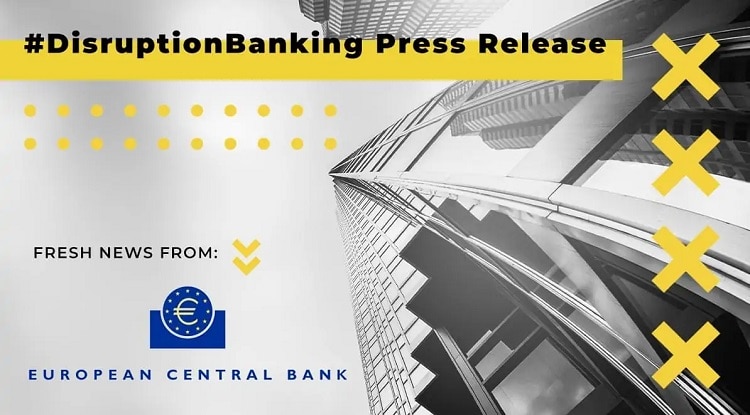Coinbase recently hit a pre-IPO valuation of $90 billion at a Nasdaq Private Market auction earlier this month, according to a report by Bloomberg. Shares were reported to have traded for $350 each.
Although initially planned for late March, Coinbase have now had to move their listing to April. The U.S. Securities and Exchange Commission has been reviewing the company’s plans for a direct listing, which is not the same as a traditional initial public offering.
It means that the retail investor won’t be able to check Coinbase in their IG, OANDA, Robinhood or other brokerage accounts. The shares will only be available to a limited private pool of investors, perhaps some employees and a few existing investors.
Coinbase CEO @brian_armstrong has a staggering pay package which, if he hits his goals, could net him $1 million per day every single day for the next decade https://t.co/sHUIs0ANVX via @SimonPeterHunt
— Joe Weisenthal (@TheStalwart) March 5, 2021
On another note, many cryptocurrency experts see Coinbase’s listing as a giant step towards worldwide cryptocurrency adoption. Others are sceptical that the listing will give the government more control of cryptocurrencies through closer regulation of a major exchange.
Cryptocurrencies have only been with us for barely a decade. Only a handful of people (probably the creators) would have believed that cryptocurrencies could have exploded as they have over the last few years.
And 2021 has been a great year, we have already witnessed Bitcoins price break multiple all-time highs. Bitcoin only this month reached its all-time high of $61,000. Many other cryptocurrencies like Cardano and Ethereum have also witnessed exponential price gains this year.
Coinbase and the Crypto Market
Coinbase was founded in 2012, it is now one of the oldest cryptocurrency exchanges in the world. Coinbase is the biggest exchange in the U.S. And, like many investment exchanges they have had their fair share of problems, to the annoyance of many cryptocurrency traders. For Coinbase to be fully adopted and listed to the public, they have to ensure that they improve the reliability of their platform.
“How many times do we have to say take your bitcoin off of Coinbase if you want to have access to it,” Rachel Siegel, a bitcoin and cryptocurrency content creator, warned via Twitter, adding, “this is not the first time Coinbase has gone down, and it surely will not be the last.”
Many centralized exchanges suffer from the same problem of reliability, partially because many exchanges have found it difficult to adopt the strict cryptocurrency laws in the U.S.
One interesting story that we picked up on here at #DisruptionBanking was how @CharlieShrem, one of the most influential people in the Crypto world, also threw his lot behind @deficliq, a one-stop location for all your DeFi needs. https://t.co/W76EHkxezG
— #DisruptionBanking (@DisruptionBank) October 20, 2020
As we covered here at #DisruptionBanking back in October 2020, the major market disruptor that Coinbase will need to face in the future are decentralized exchanges.
Decentralized exchanges have come into focus because of the popularity of DeFi in 2020. Uniswap was the first decentralized exchange, and it is popular because it allows users to exchange coins while keeping their private keys.
Centralized exchanges like Coinbase keep all the coins in a centralized storage. All the coins in centralized exchanges are prone to hackers or malicious attacks, whilst with decentralized exchanges, coins are stored in users’ private wallets.
Government regulation requires that all centralized exchanges have thorough anti-money laundering procedures known as KYC, which is not the case with decentralized exchanges.
To bring matters into further perspective, the volume of decentralized exchanges recently surpassed $44 billion (it had barely hit $11 billion when we wrote about DeFi in October). Check DeFi Pulse for the latest information.
Coinbase is still very popular because it is easier to use than a decentralized exchange. However, further challenges with reliability might make more crypto enthusiasts migrate to decentralized exchanges in the future.
Cryptocurrency acceptance in the U.S.
The U.S. recently spent a further $1.9 trillion to stimulate the growth of its economy. According to the Mizuho survey, $40 billion of the $380 billion sent in direct stimulus checks will be used to acquire stocks and Bitcoin. Many cryptocurrency experts believe that the lengthy Bitcoin bull run was partly because US citizens were spending their stimulus cheques on Bitcoin. The same was the case in our story about Robinhood last year.
Things haven’t been rosy for cryptocurrencies in the U.S. XRP, USDT, and Binance recently appeared on the radar of regulators. XRP was accused by the SEC of selling unregistered securities to investors, a case which has seen the price of XRP drop to around $0.2.
Garlinghouse has confirmed that Ripple is ready to fight a war and win. #XRP #Ripple #SEC #FCA #Crypto #Cryptoassets #Cryptocurrency #ICO #Token #Bitcoin https://t.co/UAcdDhem4r
— #DisruptionBanking (@DisruptionBank) January 15, 2021
Bitfinex and Tether settled with the Office of the New York Attorney General in a case against Tether. The total settlement was $18 million with a promise that the company will be more transparent about its reserves.
Next to be pulled up by the regulator was Binance. The Commodities Futures Trading Commission (CFTC) are trying to determine if Binance allowed US citizens to trade derivatives that violate US rules.
Some leading U.S. officials like Janet Yellen are openly against cryptocurrency, whilst the fear of an outright cryptocurrency ban like we have seen in Nigeria remains low, for now.
For Coinbase to be relevant in the years to come, the company must do everything possible to be reliable and co-operate fully with the regulator.
Coinbase investors should be wary of volatility risk.
The greatest risk facing cryptocurrency investors is the risk of volatility. Cryptocurrencies are volatile, they can shed more than 50 percent of their value overnight. The price of Bitcoin can suddenly drop within a few minutes. Coinbase consistently warn their investors of the liquidity risk involved in cryptocurrency assets.
“Investing in cryptoassets, or investments and lending linked to them, generally involves taking very high risks with investors’ money. If consumers invest in these types of product, they should be prepared to lose all their money.” @TheFCA.https://t.co/IvqXldlS01
— #DisruptionBanking (@DisruptionBank) February 20, 2021
In a recent filing with the Securities and Exchange Commission on February 25, 2021, Coinbase shared the following statements with the regulator:
“Our net revenue is substantially dependent on the prices of crypto assets and volume of transactions conducted on our platform. If such price or volume declines, our business, operating results, and financial condition would be adversely affected.
“A majority of our net revenue is derived from transactions in Bitcoin and Ethereum. If demand for these crypto assets declines and is not replaced by new crypto asset demand, our business, operating results, and financial condition could be adversely affected.”
Author: Joel Oluwatobi
#DeFi #Coinbase #UniSwap #SEC #CFTC #Nasdaq #Listing #Auction #RiseoftheRetailInvestor #Bitcoin #XRP #Binance #Bitfinex
The retail investor won’t be able to check @coinbase in their @IGcom, @OANDA, @RobinhoodApp or other brokerage accounts. The shares will only be available to a limited private pool of investors. #DeFi #Coinbase #disruptionbanking https://t.co/lSvPk5Ym7Z
— #DisruptionBanking (@DisruptionBank) March 22, 2021















One Response